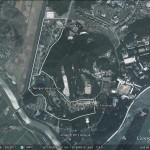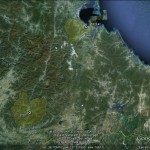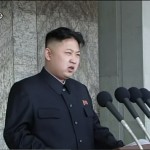Institute for Far Eastern Studies (IFES)
2012-7-10
June 30 marked the six-month period since Kim Jong Un was appointed as the supreme leader, after the sudden death of his father, Kim Jong Il on December 17.
For the first six months in power, Kim Jong Un made a total of 80 official activities, which was 19 activities more than Kim Jong Il, in the same period, last year. Out of the 80 official activities, 28 (35 percent) activities were military related. This is drastically higher than his father’s 3 activities, a mere 5 percent of his total activities. Kim Jong Un holds the top titles in the military, party, and the government as the supreme leader, first secretary of the Workers’ Party of Korea, and first chairman of the Korean People’s Army. But he mainly concentrated on the military for the first half of 2012.
However, his inspection to military units gradually decreased, from 10 in January to 5 from February to April. In May, he made 3 visits while he did not make any visits in June. This suggests he is slowly retreating from military related activities.
In the first half of 2011, Kim Jong Il concentrated heavily on the economy, making 29 onsite inspections (48 percent) to economic sectors while Kim Jong Un has made only 3 visits (3.8 percent) thus far. However, Kim Jong Un made 16 visits to the construction sites of apartment buildings, amusement parks, and other community related sites and appeared in 9 commemorative photo sessions. Upon a closer examination, Kim Jong Un engrossed on visiting military units from January to April and switched over to housing and community sites from May to June. This can be interpreted as an effort in following his father’s undertaking to revive the economy, taking heed to the improvement of welfare for the people.
In particular, it is interesting to note that North Korean media is reporting photo sessions as official activities of its leader. Kim Jong Il has also took photos after his official visits but Kim Jong Un is attending photo sessions as the sole activity. Many experts construe this as image manipulation attempt, to associate Kim Jong Un with Kim Il Sung, as he mingles with the people in photographs.
Another major difference with his father is Kim Jong Un’s lack of diplomatic activities. Kim Jong Il made numerous visits to China and Russia last year and engaged in a total of 7 diplomatic activities which includes inviting Meng Jianzhu, Chinese minister of public security visit to Pyongyang in February. Except for sending congratulatory messages to Cuba and other countries, Kim Jong Un has yet to engage in diplomatic meetings.
One commonality is, Kim Jong Un like his father is enjoying various cultural performances between field inspections. Kim Jong Il is recorded to have attended 18 performances while Kim Jong Un attended 8.
The latest report by KCNA on Kim Jong Un’s official activity is visit to nearly completed Rungra People’s Pleasure Park and the construction site of Breast Cancer Institute in Pyongyang Maternity Hospital on July 1. This is his official visit in 24 days since he attended the 66th anniversary ceremony of Korean Children’s Union.
On the other hand, while Kim Jong Un is increasing contact with the people, control and regulation of the people are also stiffened. After Kim Jong Un rise to power, the number of defectors is steadily declining. According to the Ministry of Unification, only 610 defectors entered the country this year (January to May), which is a drop of 42.6 percent from the previous year of 1,062. An official from MOU confirmed that the decrease in the number of defectors can be attributed to the tightened border control by the North Korean authorities.



